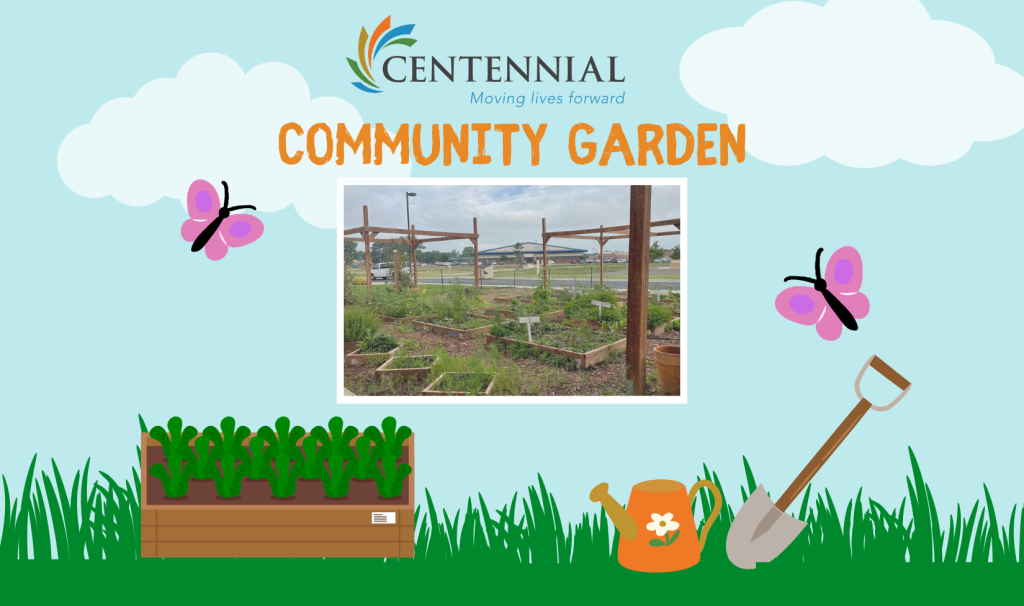
Gardening can have beneficial results on both physical and mental health. Spending time in nature can decrease levels of stress. Stress stimulates our sympathetic nervous system, which is responsible for increasing our blood pressure, heart rate and blood sugar in order to react to a stimulus that is causing us stress.” [1] While stress can be helpful, high levels of stress and feeling constantly stressed can decrease emotional and mental well-being. Immersing yourself in nature, even only for five minutes, can help lower stress and regulate the nervous system. [2] The physical activity involved in the garden can also release endorphins, which can improve mood and reduce stress levels.
Regular gardening has also been shown to enhance overall life quality, sense of community and life satisfaction. Studies also show that gardening results in various mental health outcomes, including reductions in depression and anxiety.[3]
Fort Morgan Community Garden
Adopt-A-Box
The Adopt-A-Box program encourages community organizations and entities to participate in the garden. Agencies in the community can Adopt-A-Box at Centennial’s Fort Morgan Community Garden, where they can grow nutritious food and maintain their box. Members can take the fruit and vegetables they grow home or donate them to the community. Centennial’s Garden represents collaborative partnerships and sustainability and fosters resilience. To learn more about being involved in the Adopt-A-Box initiative, call 970-867-4924.
Centennial’s Community Garden in Fort Morgan serves as a meeting space, educational environment and therapeutic haven for individuals with behavioral health needs and community members. The garden provides opportunities to learn about gardening, social engagement, physical activities and healthy habits.
The raised garden beds provide hands-on enrichment activities such as building and maintaining a garden, as well as growing and harvesting a wide variety of nutritious and culturally relevant foods. The garden also provides the opportunity to make healthy lifestyle choices and increase self-sufficiency.
The garden offers an accessible source of fresh produce for community members, as access to healthy food can be limited in the area. The garden provides opportunities for members to increase their consumption of nutritious, fresh produce. Community members can take the produce they grow or donate it to other members of the community.
[1] Sara Youngblood Gregory, “The mental health benefits of nature: Spending time outdoors to refresh your mind.” Mayo Clinic Press, March 4, 2024, The mental health benefits of nature: Spending time outdoors to refresh your mind – Mayo Clinic Press
[2] Sara Youngblood Gregory, “The mental health benefits of nature: Spending time outdoors to refresh your mind.” Mayo Clinic Press, March 4, 2024 The mental health benefits of nature: Spending time outdoors to refresh your mind – Mayo Clinic Press
[3] Masashi Soga, Kevin J Gaston, Yuichi Yamaura, “Gardening is beneficial for health: A meta-analysis.” National Library of Medicine, March, 2017, Gardening is beneficial for health: A meta-analysis – PubMed (nih.gov)






